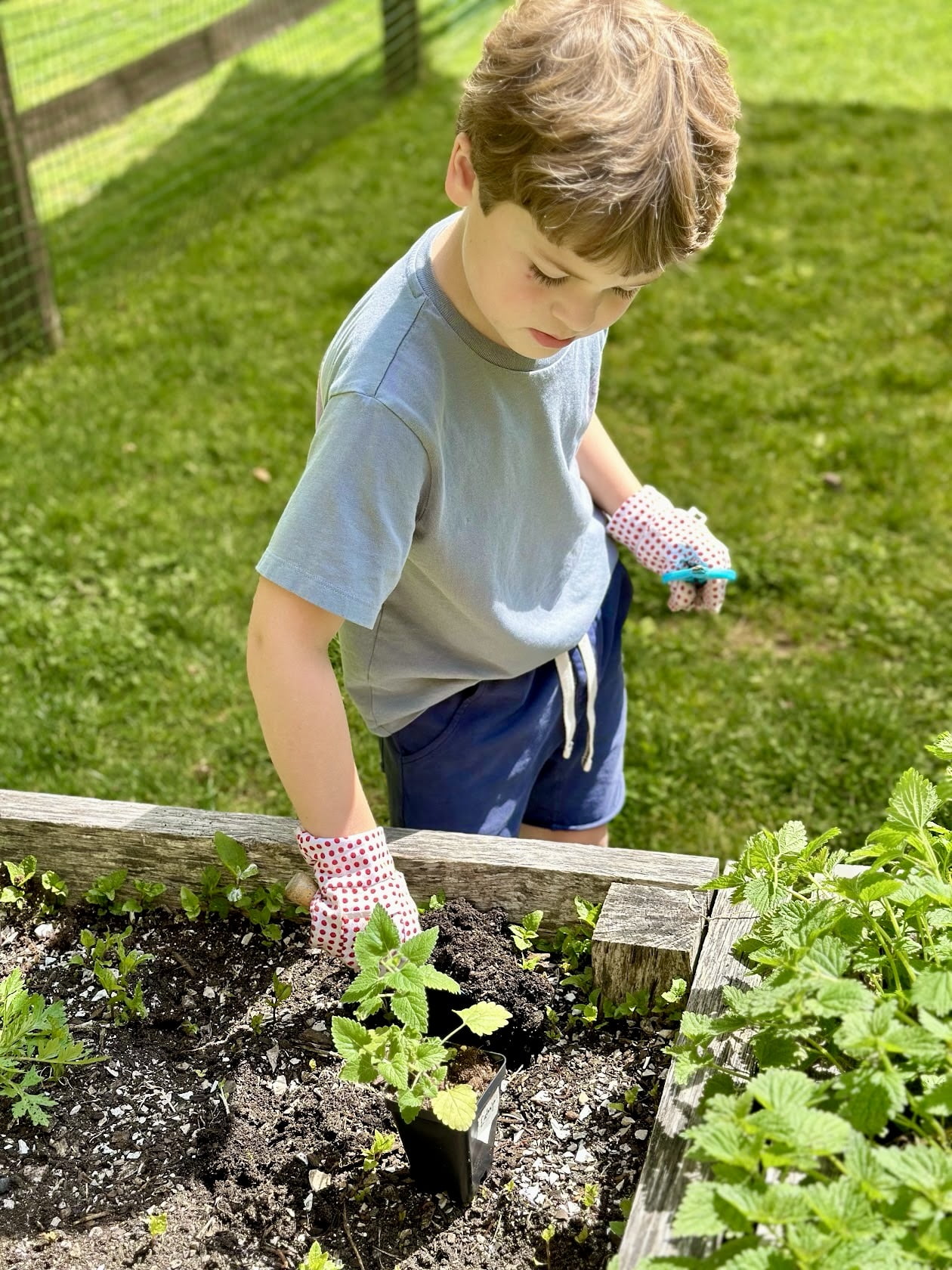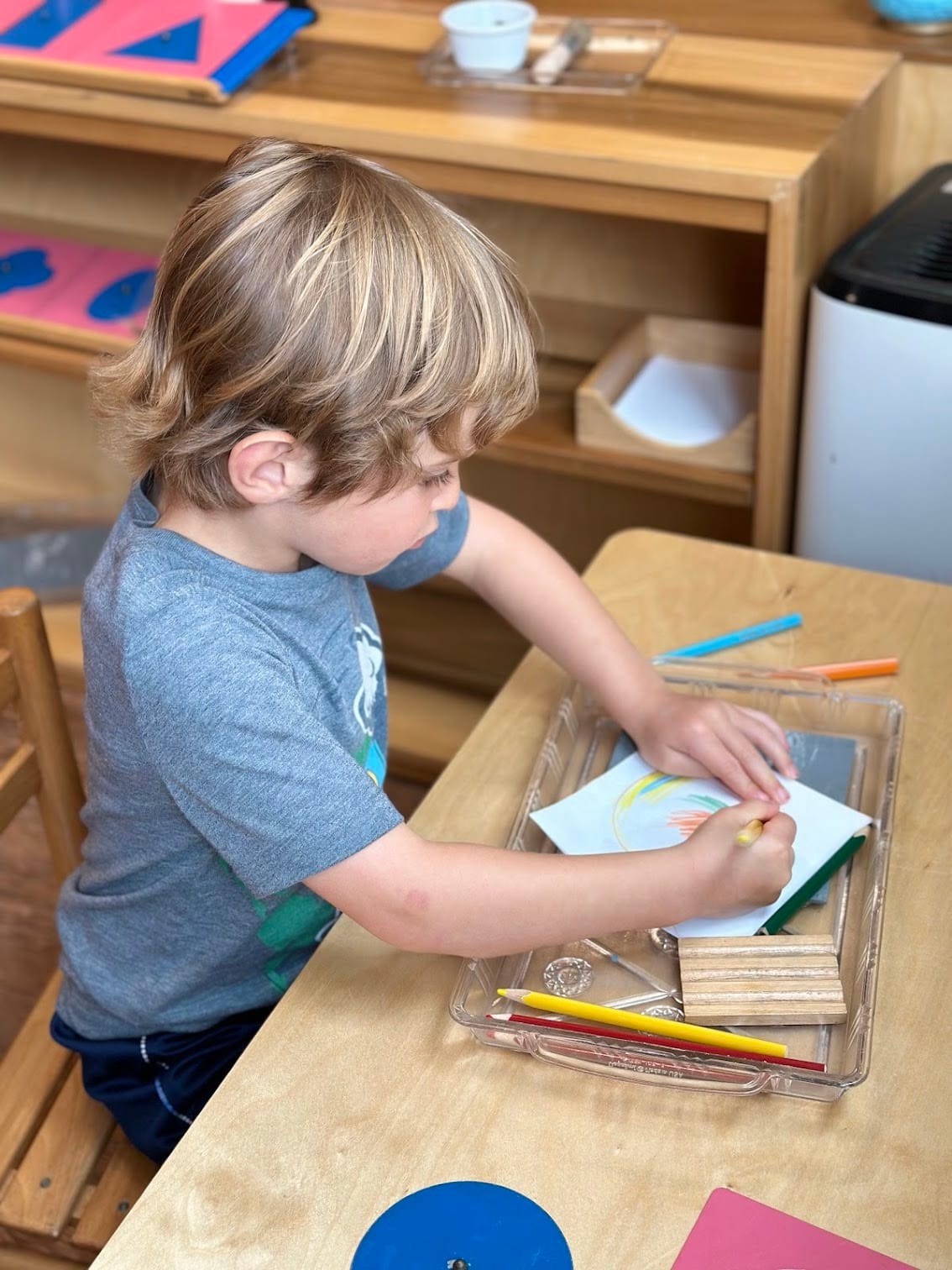Discover Our Primary Community
The preschool environment for children from three to six years of age at Quest is called Primary. Primary is designed to be homelike, welcoming, aesthetically pleasing, and orderly so children come to think of the setting as a ‘mini-community’ where they learn skills they can apply at home, and in the wider community.
The Gift of Choice
For the young child, learning is a process that involves all the senses. Dr. Maria Montessori created enticing materials for children to manipulate, and through their exploration, understand higher-level concepts, develop inner discipline, and foster their natural curiosities. She discovered that given the proper amount of guidance and freedom, children develop a positive sense of self and community.
The resources and activities in Primary are designed to:
- develop independence
- encourage exploration
- build social skills
- develop oral communication skills
- develop written communication and the foundations of joyful reading
- develop an understanding of mathematical concepts
- develop the ability to make informed decisions
- lengthen the amount of time a child can engage in deep concentration
- refine the use of the senses
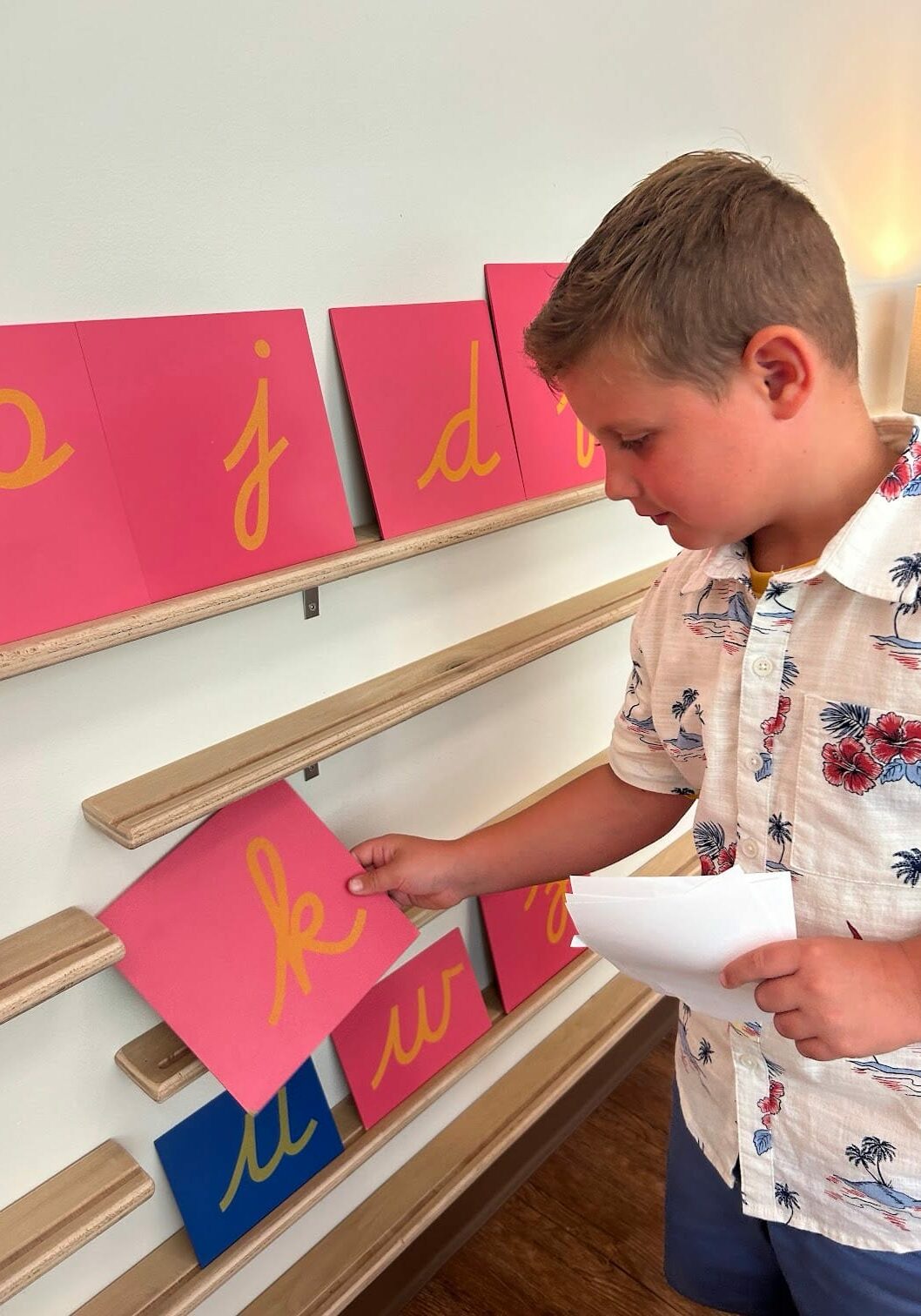
Mixed Age Groups
The magic of a Montessori mixed age group is older children validate their learning by becoming the ‘experts’ in the room. Peer teaching occurs when they share their knowledge and skills, take on the role of caretakers, and become role models for younger children. Younger children are also further inspired and motivated to learn as they see older children working on the next step in the progression of lessons.
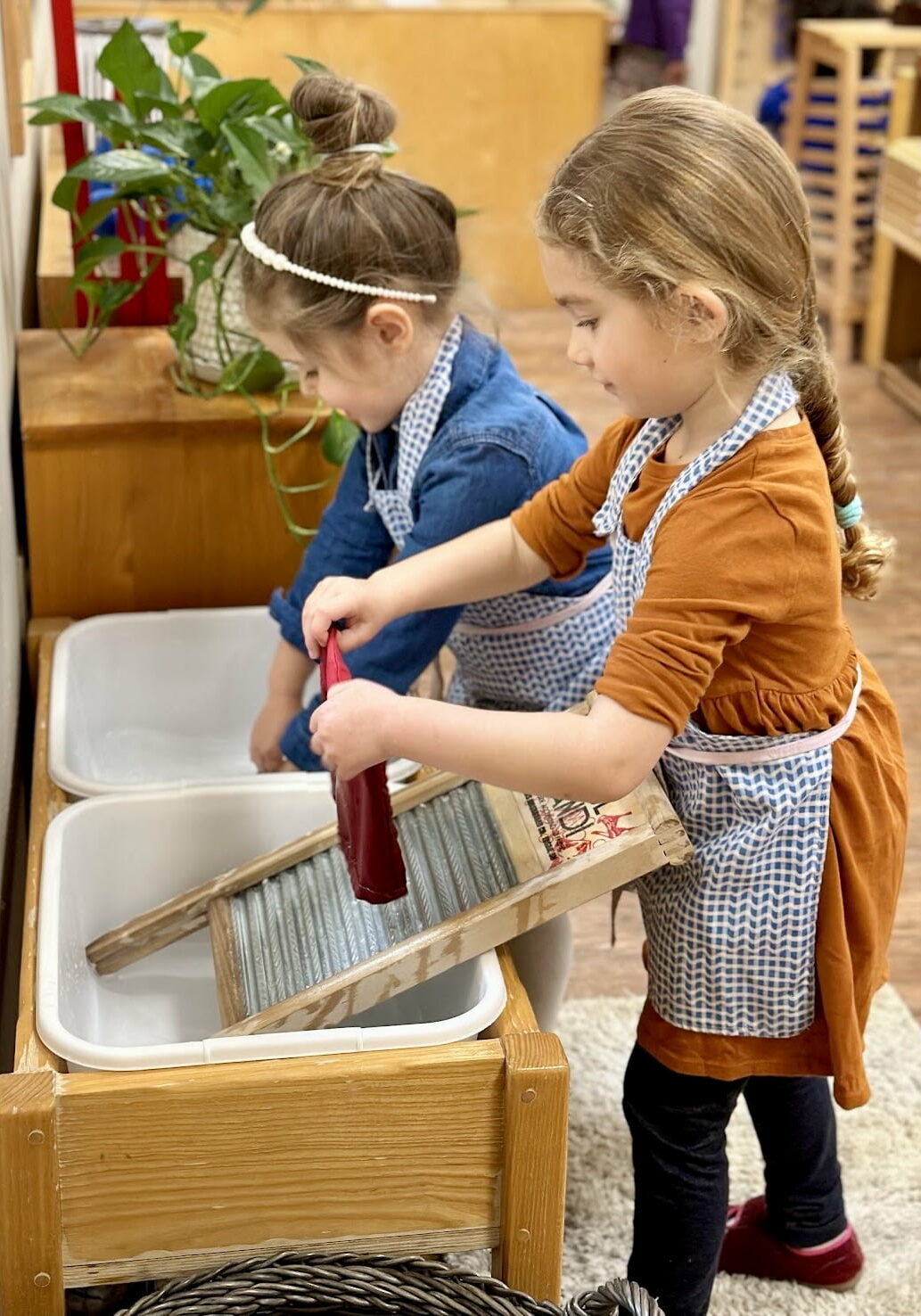
How the Learning Happens
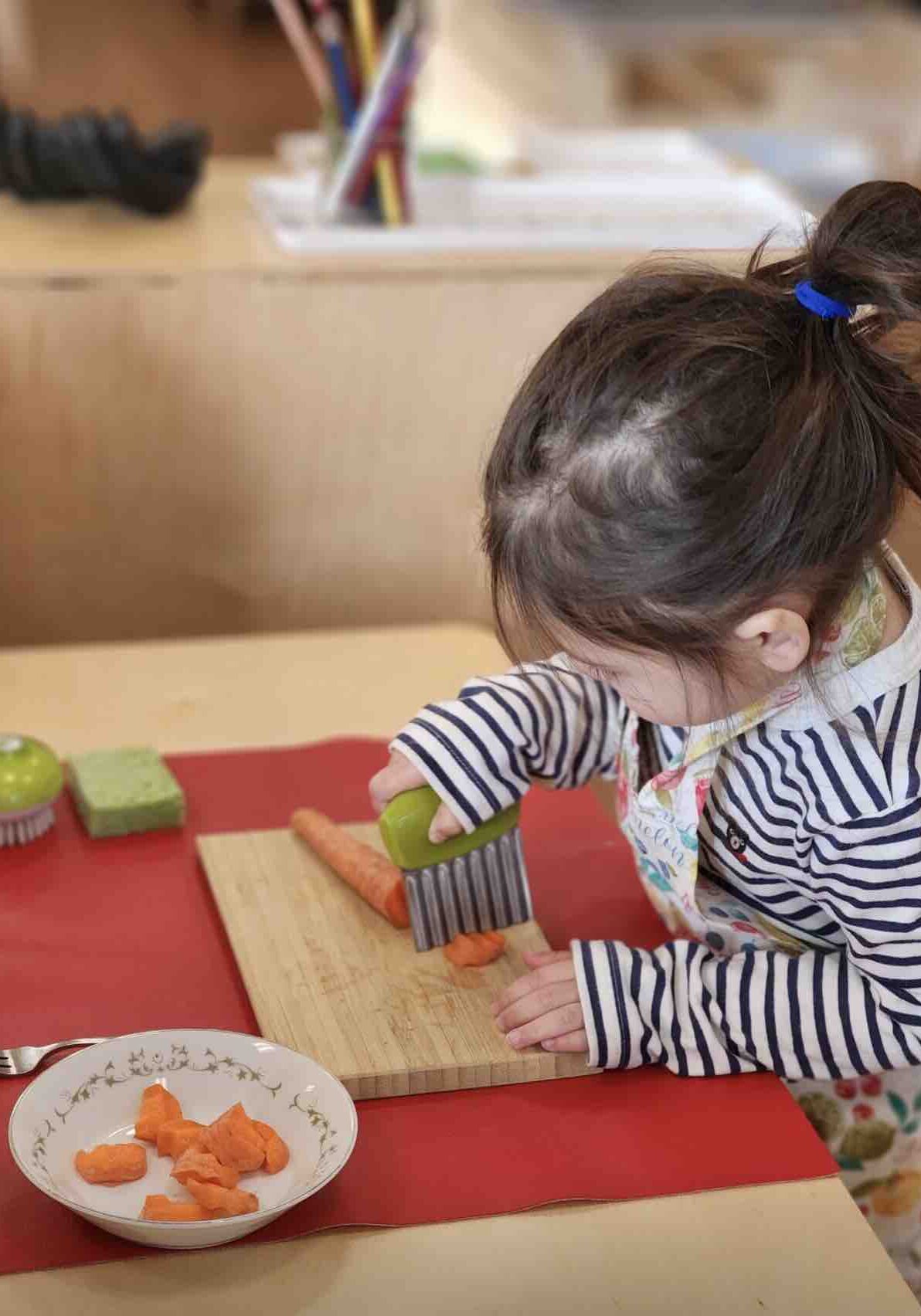
Child Centered
In general, guide/child ratios are carefully planned so there is just enough support for the children, but not too much interference from adults in the children’s activity. Children are encouraged to be self-reliant, or to solve problems with their peers with as little adult intervention as possible. In this way, children develop self-assurance and self-esteem as they progress through the program.
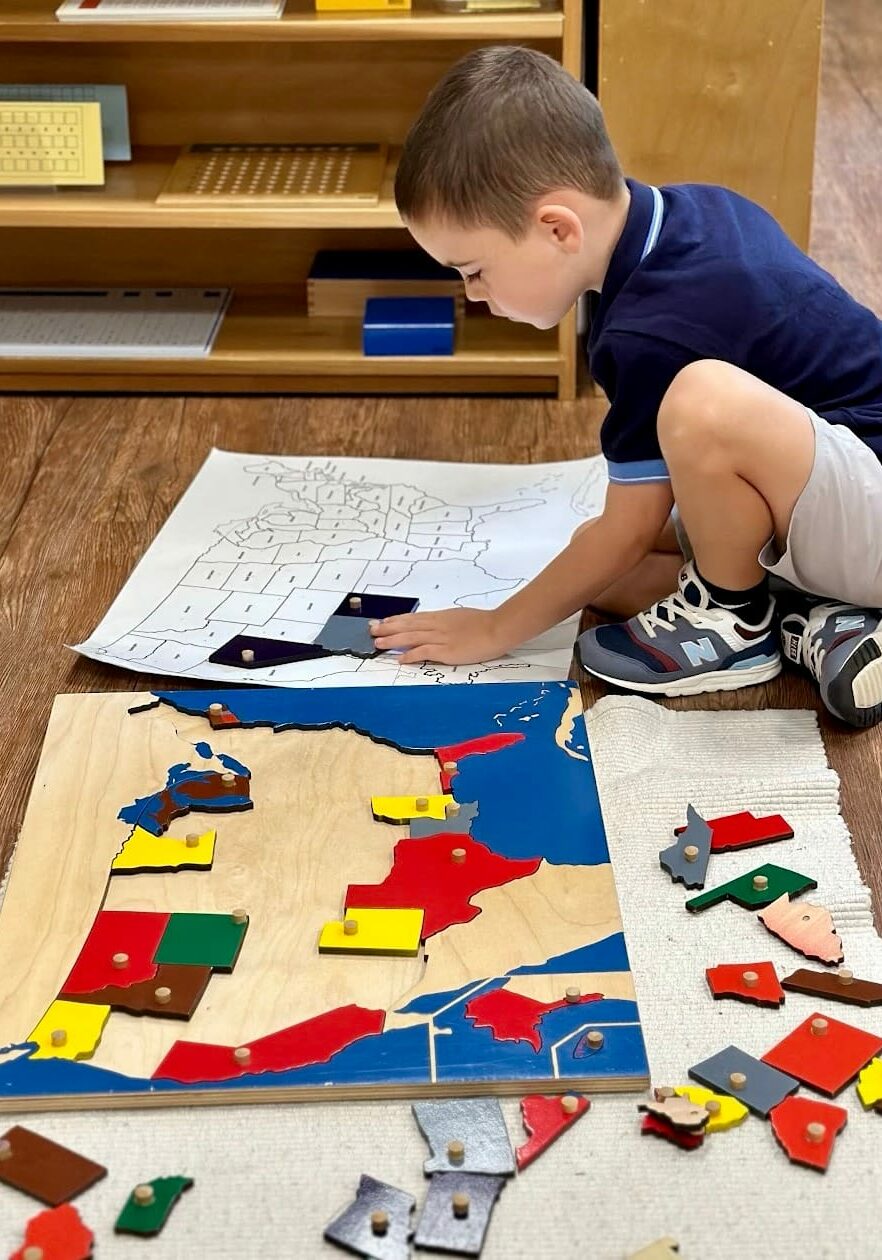
An Example of the Primary Daily Schedule
| 8:00-8:30
8:30 |
Early Start Available
Arrival |
| 8:30-11:15 | Morning Work Cycle |
| 11:15 | Gathering & Preperations for Lunch |
| 11:30-12pm | Community Lunch |
| 12pm | Dismissal for Half-Day Students |
| 12:15-2:45 | Afternoon Work Cycle & Outdoor Play, 5&6 year olds
Resting & Outdoor Play, 3&4 year olds |
| 3:05
3:05-4:30 |
Dismissal
After School Enrichment Programs |

